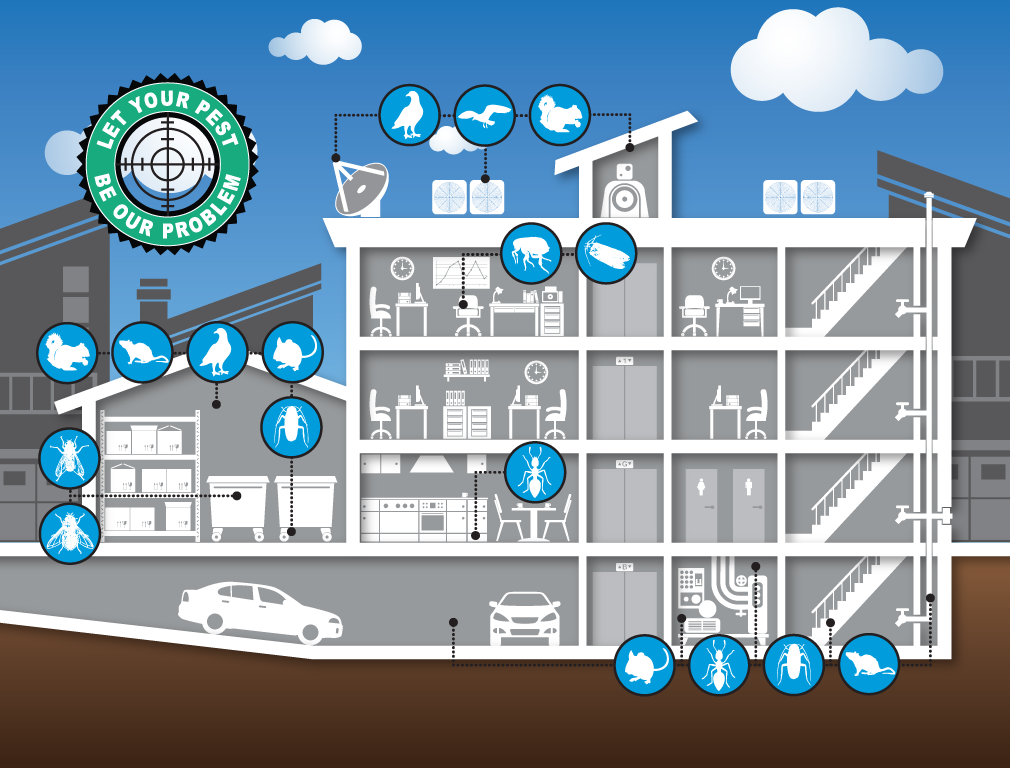Past The Spray: Checking Out Advanced Techniques Utilized By Parasite Control Specialists
Past The Spray: Checking Out Advanced Techniques Utilized By Parasite Control Specialists
Blog Article
Posted By-Evans Carpenter
Are you tired of counting only on sprays to handle pests in your home or work environment? While sprays can be effective, pest control professionals have actually created innovative methods that surpass merely spraying chemicals.
These methods not only supply extra efficient and lasting services, but also focus on reducing using unsafe chemicals. By discovering these advanced strategies, you will uncover an entire brand-new world of pest control techniques that are not only reliable, however likewise eco-friendly.
So, are you ready to take your insect control game to the next degree?
Integrated Bug Management (IPM)
If you're seeking an efficient and environmentally-friendly strategy to pest control, Integrated Bug Management (IPM) is the option you need. IPM focuses on long-term prevention and administration of insects, instead of simply relying upon pesticides. This strategy thinks about the details needs and behaviors of parasites, as well as the surrounding atmosphere.
By utilizing a combination of strategies such as organic control, habitat adjustment, and targeted chemical use, IPM aims to lower the reliance on chemical treatments and lessen injury to non-target organisms.
One vital element of IPM is checking and recognizing bugs properly. This entails regularly checking and assessing the pest populace, in addition to identifying the details species existing. By recognizing the biology and habits of bugs, bug control specialists can create targeted strategies to disrupt their life cycle and decrease their numbers.
An additional essential element of IPM is utilizing non-chemical control approaches whenever feasible. This can consist of physical barriers, such as mounting displays or securing fractures and openings, to stop bugs from going into buildings. In visit this website link , social techniques, like proper cleanliness and waste administration, can help get rid of insect food sources and breeding premises.
When pesticides are necessary, IPM focuses on utilizing them judiciously and as a last hope. This indicates picking the least harmful and most efficient alternative, using it precisely and just to impacted areas, and following all safety and security guidelines. By decreasing pesticide use, IPM lowers the possible dangers to human health and wellness and the setting.
Biological Control
To better improve the performance of Integrated Pest Management (IPM), the following subtopic we'll discover is the method of organic control. This technique makes use of natural predators or parasites to manage pests.
Right here are 4 vital aspects of biological control:.
1. Introduction of all-natural opponents: In this method, valuable pests or organisms are introduced to the area infested with pests. These all-natural adversaries take advantage of the pests, aiding to lower their population.
2. Preservation of natural enemies: Instead of introducing brand-new organisms, this technique focuses on producing an ideal setting for existing advantageous bugs. https://www.newsweek.com/wild-animals-shot-air-rifle-rescued-zoo-australia-1694270 can be accomplished via offering food, sanctuary, and water sources.
3. Augmentation: Below, the number of natural opponents is increased synthetically by reproducing and launching them into the ravaged area. This assists to quickly decrease the pest populace.
4. Push-pull strategy: This method combines repellents and attractants to control the behavior of parasites. Repellents press insects far from plants, while attractants lure them in the direction of trap crops or locations where they can be easily controlled.
Environment Alteration
Habitat adjustment plays a crucial function in pest control by altering the environment to inhibit bug infestations. By making changes to the physical qualities of a room, you can produce an unwelcoming environment for insects, making it harder for them to endure and flourish.
One usual approach of habitat alteration is getting rid of or minimizing potential food resources for bugs. This can include correct waste monitoring, sealing containers, and tidying up food crumbs.
Furthermore, removing or minimizing locations of standing water can aid control bugs like insects.
Transforming the landscape by cutting trees and hedges away from buildings can additionally stop parasites from accessing your property.
Conclusion.
So there you have it - the sophisticated methods made use of by pest control specialists surpass simply spraying chemicals. Integrated Pest Administration (IPM) integrates numerous methods to properly manage pests, while organic control takes advantage of all-natural opponents to keep parasite populaces in check.
Habitat adjustment also plays a critical role in avoiding insect infestations.
Did you know that according to a study, applying IPM methods decreased chemical usage by an average of 71%? This not only safeguards our health and wellness and the setting yet also conserves money in the future.
